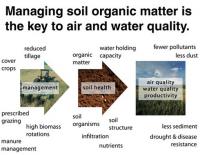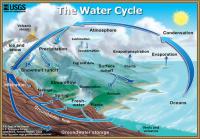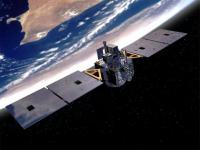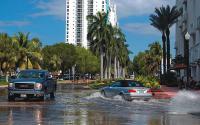-
Registration opens for U.S. Cyber Challenge’s annual Cyber Quests competition
U.S. Cyber Challenge (USCC) on Monday opened registration for the 2016 Cyber Quests online competition. The annual Cyber Quests competition determines who qualifies for the USCC Summer Cyber Camps, a leading nationwide program in cybersecurity workforce development.
-
-
Non-state actors exploiting emerging technologies, complex engineering
In a special issue of the Journal of Strategic Security, experts explore the threat of violent non-state actors (VNSAs) exploiting emerging technologies and executing complex engineering operations to facilitate their violent and criminal activities. The special issue of the journal presents the results of a series of case studies of VNSAs and their attempts to increase their capabilities through engaging in sophisticated engineering efforts.
-
-
Pressure mounts to keep human control over killer robots
Fully autonomous weapons would go a step beyond existing remote-controlled drones as they would be able to select and engage targets without human intervention. Although these weapons do not exist yet, the rapid movement of technology from human “in-the-loop” weapons systems toward “out-of-the-loop” systems is attracting international attention and concern. Countries should retain meaningful human control over weapons systems and ban fully autonomous weapons, also known as “killer robots,” Human Rights Watch and the Harvard Law School International Human Rights Clinic said in a new report. The concept of meaningful human control will be a centerpiece of deliberations at a week-long multilateral meeting on the weapons, opening 11 April 2016, at the United Nations in Geneva.
-
-
Sea Hunter, world’s first robot warship
At the Pentagon nowadays, you are starting to see robots everywhere. They dispose of bombs, and throw out the occasional first pitch. They help Marines improve their target shooting. And, if they are human-robot teams that entered last year’s DARPA Robotic Challenged Finals, they drive vehicles, use tools, open doors, climb stairs, and do all sorts of other things. Now another robot — one designed and built by the Defense Advanced Research Projects Agency (DARPA) — happens to be the very first robot warship.
-
-
Underestimate global warming by exaggerating cloud “brightening”
As the atmosphere warms, clouds become increasingly composed of liquid rather than ice, making them brighter. Because liquid clouds reflect more sunlight back to space than ice clouds, this “cloud phase feedback” acts as a brake on global warming in climate models. Researchers at Lawrence Livermore National Laboratory and Yale University have found, however, that climate models are aggressively making clouds “brighter” as the planet warms. This may be causing models to underestimate how much global warming will occur due to increasing carbon dioxide.
-
-
Soil’s carbon storage could help limit impact of climate change

Soils currently lock away around 2.4 trillion tons of greenhouse gases, which are stored underground as stable organic matter. Researchers say the world’s soils could store an extra eight billion tons of greenhouse gases, helping to limit the impacts of climate change. Growing crops with deeper root systems, using charcoal-based composts, and applying sustainable agriculture practices could help soils retain the equivalent of around four-fifths of annual emissions released by the burning of fossils fuels, the researchers say.
-
-
Water cycle instability posing major political and economic risks: UN experts

The current instability and unpredictability of the world water cycle is here to stay, making society’s adaptation to new risks a vital necessity when formulating development policies, a UN water expert warns. “What we haven’t understood until now is the extent to which the fundamental stability of our political structures and global economy are predicated on relative stability and predictability of the water cycle — that is, how much water becomes available in what part of the year. As a result of these new water-climate patterns, political stability and the stability of economies in most regions of the world are now at risk,” the expert says.
-
-
Tougher steel could be used for body armor, shields for satellites

A team of engineers has developed and tested a type of steel with a record-breaking ability to withstand an impact without deforming permanently. The new steel alloy could be used in a wide range of applications, from drill bits, to body armor for soldiers, to meteor-resistant casings for satellites.
-
-
Renewables and nuclear no substitute for carbon dioxide disposal
Oxford scientist argues that there are only two things we can affect with policies today that will really matter for peak warming: reducing the cost of large-scale capture and disposal of carbon dioxide, and maximizing the average rate of economic growth we achieve for a given rate of emission in the meantime.
-
-
Islamist radicals from Muslim countries tend to have engineering qualifications
Islamist radicals born and educated in Muslim countries are seventeen times more likely to have an engineering qualification than the general population in these countries. A new book, which relies on a study of over 800 members of violent Islamist groups, challenges a widely held view that many terrorists are “poor, ignorant and have nothing to lose,” according to its authors. “There is little doubt that violent Islamist radicals are vastly more educated than the general population born and educated in the Muslim world, and engineers are dramatically over-represented,” the authors say.
-
-
Flooding, accelerated sea-level rise in Miami over last decade

Miami Beach flood events have significantly increased over the last decade due to an acceleration of sea-level rise in South Florida. Scientists suggest that regional sea-level projections should be used in place of global projections to better prepare for future flood hazards in the region.
-
-
Global warming of 2.5°C degrees would put at risk trillions of dollars of world’s financial assets
An average of $2.5 trillion, or 1.8 percent, of the world’s financial assets would be at risk from the impacts of climate change if global mean surface temperature rises by 2.5°C (4.5°F) above its pre-industrial level by 2100, according to a new study. that the authors found, however, that uncertainties in estimating the “climate Value at Risk” mean that there is a 1 percent chance that warming of 2.5°C could threaten $24 trillion, or 16.9 percent, of global financial assets in 2100.
-
-
California drought patterns becoming more common

Atmospheric patterns resembling those that appeared during the latter half of California’s ongoing multi-year drought are becoming more common. The current record-breaking drought in California has arisen from both extremely low precipitation and extremely warm temperature. The new study found clear evidence that atmospheric patterns that look like those seen during this extreme drought have in fact become more common in recent decades.
-
-
Analyzing the effects of rising sea levels in Norfolk, Va.
In Norfolk, Virginia, an East Coast city which is home to the world’s largest naval station and important seaports, catastrophic flooding could damage more than homes and roads. A new study from Sandia National Laboratories assesses how much the city, its region, and the nation would suffer in damages to national assets and lost economic activity if it does nothing to address rising sea levels. The analysis method is available to cities that want to become more resilient.
-
-
Rapid Antarctica ice melt: Sea-level rise nearly double over earlier estimates
A new study suggests that the most recent estimates by the Intergovernmental Panel on Climate Change for future sea-level rise over the next 100 years could be too low by almost a factor of two. The researchers incorporated into their models mechanisms that were previously known but never incorporated in a model like this before, and added them to their ice-sheet model, so they could consider the effects of surface melt water on the break-up of Antarctica’s ice shelves and the collapse of vertical ice cliffs.
-
More headlines
The long view
New Technology is Keeping the Skies Safe
DHS S&T Baggage, Cargo, and People Screening (BCP) Program develops state-of-the-art screening solutions to help secure airspace, communities, and borders
Factories First: Winning the Drone War Before It Starts
Wars are won by factories before they are won on the battlefield,Martin C. Feldmann writes, noting that the United States lacks the manufacturing depth for the coming drone age. Rectifying this situation “will take far more than procurement tweaks,” Feldmann writes. “It demands a national-level, wartime-scale industrial mobilization.”
How Artificial General Intelligence Could Affect the Rise and Fall of Nations
Visions for potential AGI futures: A new report from RAND aims to stimulate thinking among policymakers about possible impacts of the development of artificial general intelligence (AGI) on geopolitics and the world order.
Smaller Nuclear Reactors Spark Renewed Interest in a Once-Shunned Energy Source
In the past two years, half the states have taken action to promote nuclear power, from creating nuclear task forces to integrating nuclear into long-term energy plans.
Keeping the Lights on with Nuclear Waste: Radiochemistry Transforms Nuclear Waste into Strategic Materials
How UNLV radiochemistry is pioneering the future of energy in the Southwest by salvaging strategic materials from nuclear dumps –and making it safe.
Model Predicts Long-Term Effects of Nuclear Waste on Underground Disposal Systems
The simulations matched results from an underground lab experiment in Switzerland, suggesting modeling could be used to validate the safety of nuclear disposal sites.
